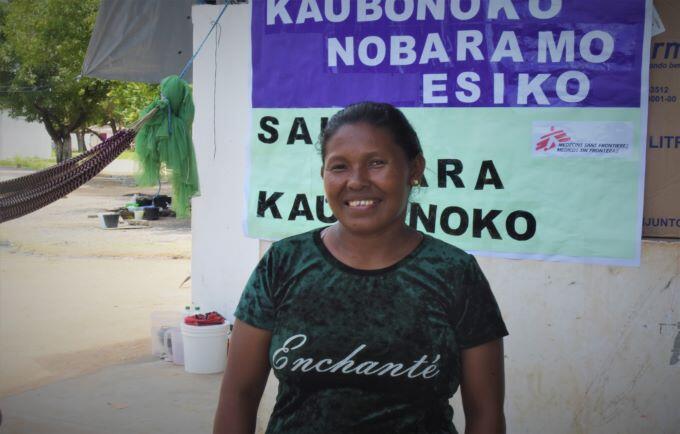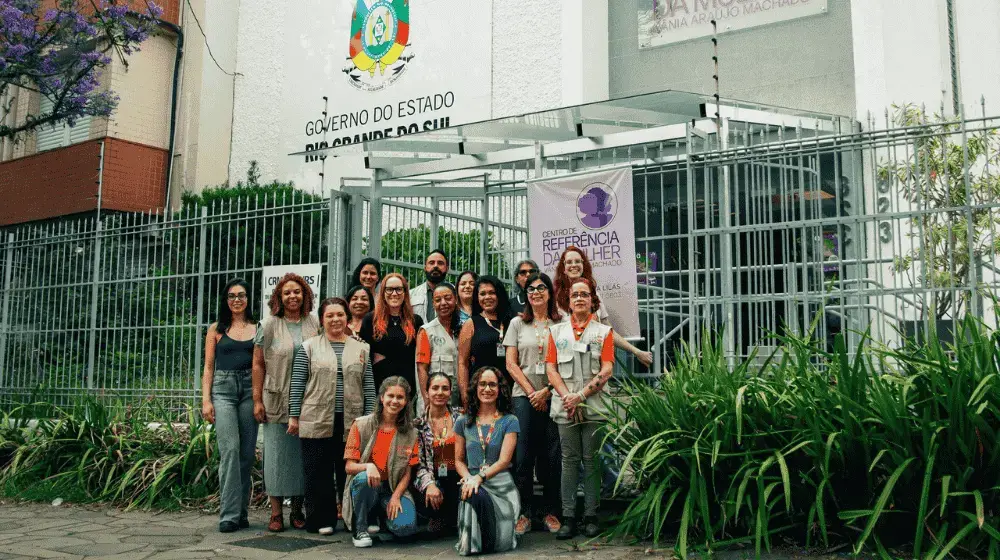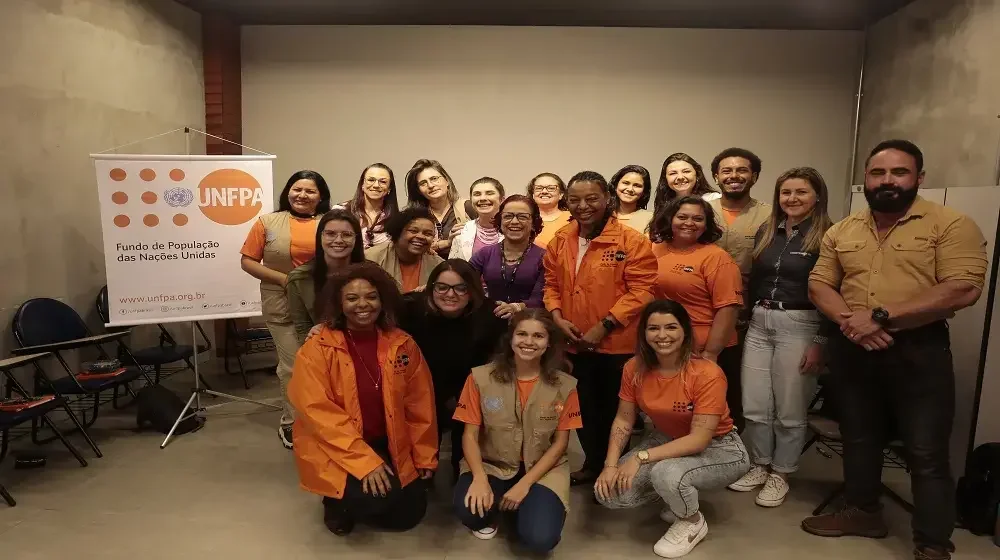Bernandina is an indigenous woman of the people Warao that arrived in Brazil seven months ago. The Warao people were the first Venezuelan indigenous migrants that arrived in Roraima in 2016, when some relatives of Bernandina also went to Brazil, but not her: she decided to stay a little longer, hoping to keep and her family inside where she considered her land. But, as she recalls, the situation was getting worse through the months, until reaching the point where they saw themselves forced to leave, to meet their relatives in the new country.
Bernandina arrived at the beginning of 2019 with her two daughters, in a situation she describes as “complete despair”. “I was so desperate and lost, the only thing I wanted was to meet my family”, she says. After wandering for several days in the streets of Boa Vista, trying to find her relatives, Bernandina was informed of the existence of an occupation, where it could be found lots of people from different indigenous communities of Venezuela, a place where she managed to be installed and where, fortunately, she found the rest of her family. “They were all here, together. I was crying and my kids didn’t understand a thing”, she recalls, laughing.
Ka’ubanoko is the name that the indigenous people Warao gave to the occupation, which means: My Home. It’s a space where there are more than 600 indigenous and non-indigenous. “Here, we sleep and eat well, but we are all working hard to sustain our families”, Bernandina explains.
Now, the occupation is organized internally by its own residents, that have designated different leaders to coordinate the tasks. Bernandina is, today, one of those leaders. She is the one helping with internal coordination and managing activities made with a sort of institutions that, like the United Nations Population Fund, offers support to the community, responding to the migration flows in Roraima.
The UNFPA has been doing many activities to expand the information and access of those in situation of most social vulnerability to sexual and reproductive health and rights, including prevention to gender-based violence and community resilience. Through strategies of community resilience, the UNFPA supports and encourages women that are leaders like Bernandina in their process of integration in Brazilian territory.
Bernandina, who was one of the main participants of these sessions, acknowledges the importance of these activities. “This is our home and we have to take care of it. It is important that all of us know when we are living in a situation of violence and, as they taught us, don’t allow it to continue. I say we all have to be part of these meeting groups to improve our lives, mostly those who have husbands. At the beginning of the occupation, there was a lot of violence, but I believe we are getting better, we are many women here”, explains. She says she is very well with her daughters and family in Boa Vista and intends to keep supporting the coordination of the occupation.





